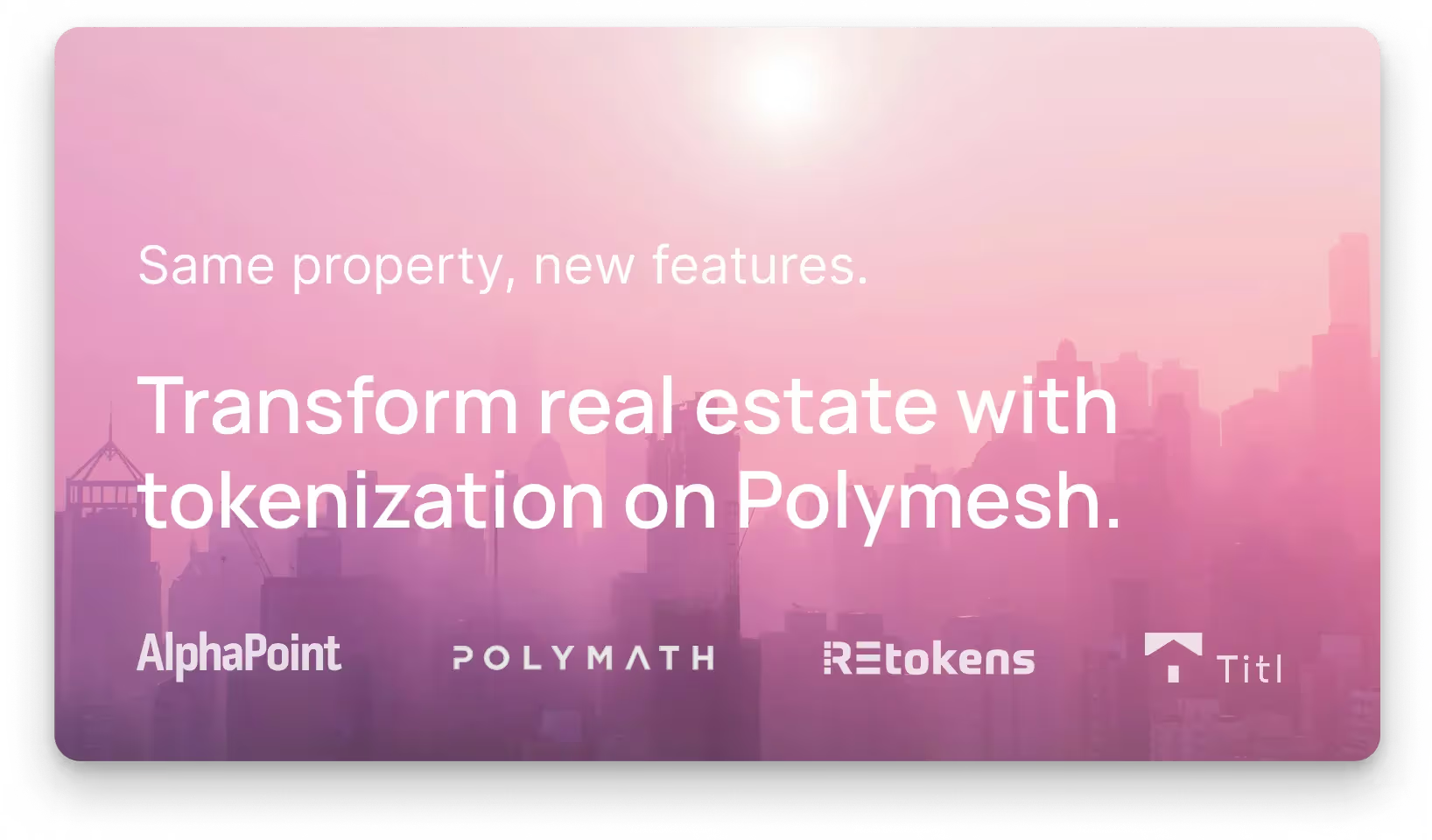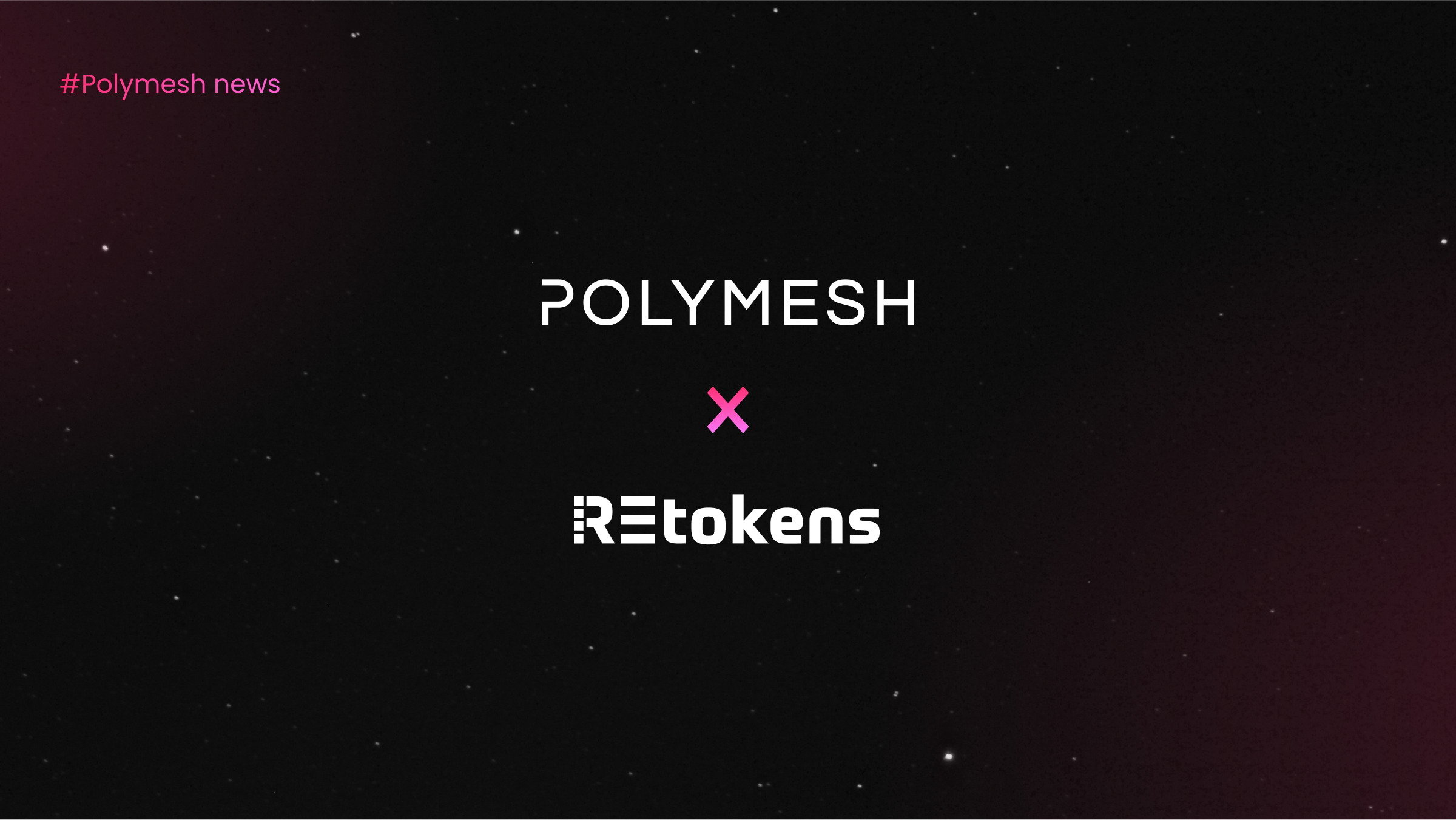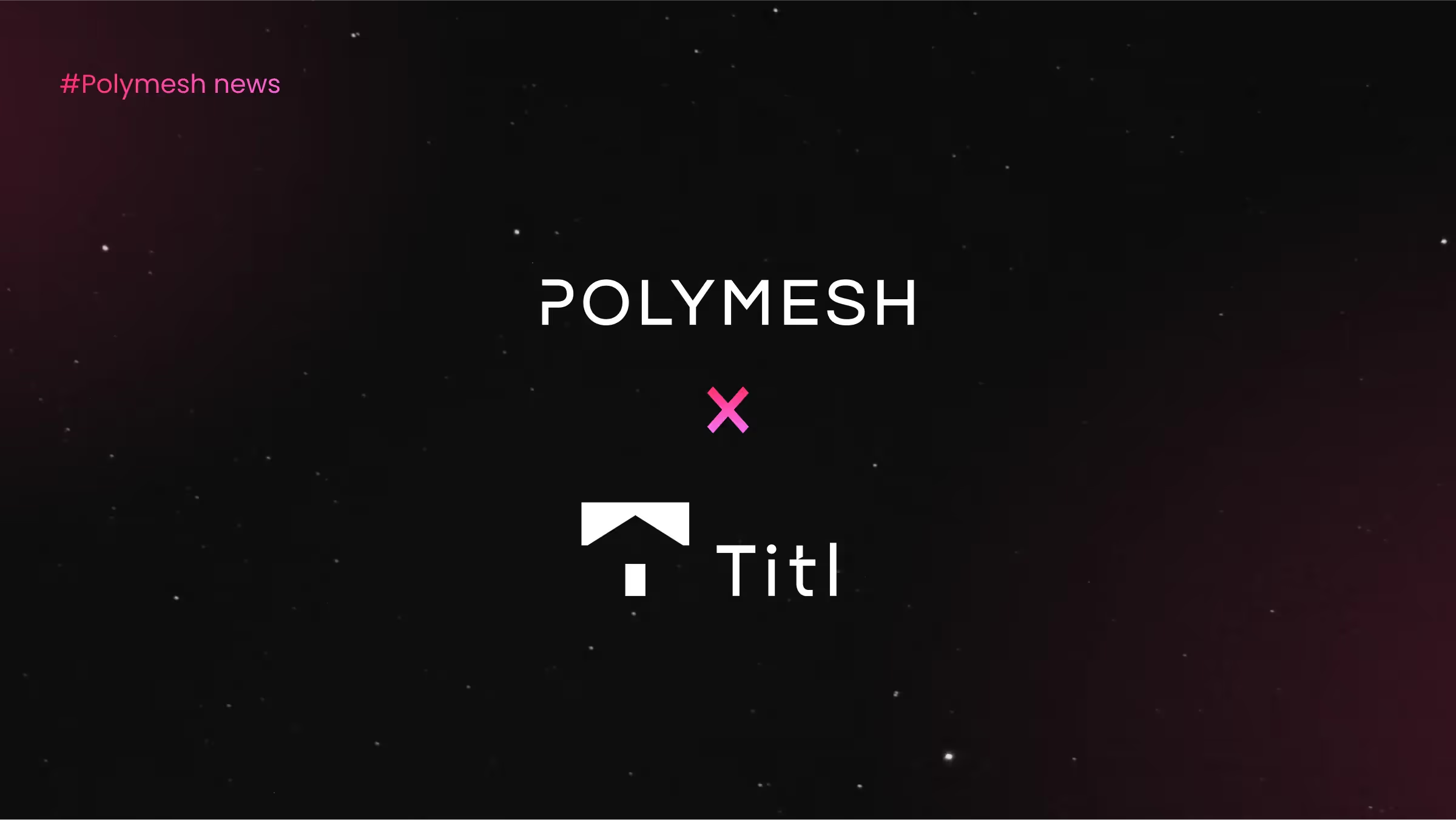You can now invest in a luxury real estate asset for as little as $1
Imagine this: You’re perusing a real estate marketplace app from your favorite coffee shop in New York when you find out that you can invest in a luxury high-rise in Tokyo for as little as $1; less than your daily americano.
You then find out that owning one of these $1 digital tokens would also grant you ownership rights to the $100 million dollar building; if you owned $100 worth, you’d be able to claim one-millionth (0.000001%) of the underlying value, sales price, net cash flow from monthly rental payments, and depreciation value should the value decrease.
This is the reality made possible by real estate tokenization!
The era of “digitizing everything” has begun, and the real estate industry is next up to be hit by automation.
This blog post breaks down three of the major benefits of real estate tokenization.
1. Fractionalization of ownership made truly feasible
Fractional ownership of property isn’t new, but it gets a major upgrade with tokenization.
Traditionally, investors could gain exposure to commercial real estate without owning a whole property by placing funds into a Real Estate Investment Trust (REIT). Modeled after mutual funds, REITs are public investment funds that pool investor capital into profitable real estate leased out to businesses, allowing investors to procure premium commercial properties, trade them like traditional stocks, and gain the monetary benefits.
The problem with REITs is that they often have high minimum investments as they are difficult, expensive, and time-consuming to create. REITs are also not easily accessible, controlled by the brokerage or underwritten by particular companies. Moreover, investors only gain exposure to entire portfolios; REITs don’t let investors pick and choose where to invest their capital. Returns from REITs are also not as high as other forms of fractional investing.
The alternatives – private placements or crowdfunding – can provide better returns, but are often plagued by similar problems of inflexibility and illiquidity. Private placements being private are obscured to most investors and require large upfront capital to be committed usually for a minimum of a few years. Meanwhile, crowdfunding platforms often charge hefty fees, require minimum lock-up periods, and can prevent trades in secondary markets.
It’s only now that blockchain technology makes fractionalization truly feasible in a way that’s low-cost, flexible, liquid, and affords the investor more control.
With blockchain, real-world assets (RWAs) such as real estate can be fractionalized into multiple digital tokens of an accessible and affordable size, lowering the traditionally high barriers to entry for real estate investing. Instead of buying an entire property or investing in a whole, pre-determined portfolio of assets of varying quality, investors can purchase a token representing a percentage of ownership in a property on-chain of their choice. This provides investors with more choice and the opportunity to hyper-target their desired asset mix in real estate investing, since a property can be fractionalized into and sold by, say, 100 tokens each representing 1% of the total value of the real estate.
With investors able to own real estate tokens representing part equity in one property, new opportunities for real estate investing open up. A pool of investors can own a rental building, with each owner receiving income from monthly rental payments in proportion to the number of tokens owned; a similar benefit to what is offered by REITs. Property can be divided into square feet or even square inches, enabling thousands of investors to participate in one property investment. Real estate asset owners who want to retain majority ownership can sell only enough tokens to cover a percentage of the property, say to raise funds for a new wing or renovation.
Ultimately, fractionalization through tokenization and the global nature of blockchain will turn real estate investing into a more personalized type of investing that is open to virtually anyone, anywhere in the world.
2. Improved liquidity and accessibility of real estate investments
Real estate has traditionally been a tricky investment to buy or sell as it involves many legal and administrative procedures, large capital commitments, and long time horizons from liquidity issues. As a result, assets are increasingly locked up by the ultra-wealthy, large institutions, and privacy equity firms; it’s nearly impossible for small scale investors to access them directly.
Tokenization has the potential to significantly improve the liquidity and accessibility of real estate investments, and in turn disrupt the “rich-get-richer” paradigm. Tradeable in fractions up to multiple decimal places, tokens enable investors to invest in fragments of real estate assets without the high initial equity required to invest directly as an individual entity. In other words, tokenization lowers the barrier to entry and capital requirement for this historically elusive asset class.
The liquidity this unlocks can benefit both investors and real estate asset owners, providing both with increased freedom to invest or gain capital however they choose. Investors get more investment opportunities at lower costs and the chance to diversify their portfolio with a wider range of assets, diversifying their risk and potentially reaping higher returns which they can reallocate to future offerings.
Meanwhile real estate asset owners gain access to a larger pool of possible investors, many of whom were previously unable to participate in the market. Real estate asset owners can tokenzie their own property to raise capital and quickly release equity, raise temporary funds, obtain debt secured by their tokens, or grow their portfolio by trading their tokens for tokens representing other real-world assets.
The ease of transacting in these fractional tokens on blockchain enables virtually any income class to buy tokens representing large real estate assets, at just a fraction of the traditional cost. And with tokens easily tradable 24/7/365 across global networks, almost anyone in the world can participate, extending typically local real estate markets to more international markets.
The tokenization of real estate will make the market more efficient, liquid, and transparent. With fractionalization making it easier to own small pieces of real estate assets or offer flexibility in terms of investment size, it will be easier for investors to enter and exit the market and for existing real estate asset owners to unlock value and liquidity for their properties.
Overall, tokenization can empower both investors and real estate owners to reap the rewards of property ownership.
3. Better efficiency and transparency of ownership plus transfer of real estate assets lead to lower transaction costs and less instances of misconduct
Making illiquid real estate assets highly liquid echoes the events that led up to the 2008 financial crisis, when real estate assets such as mortgages were securitized and sold as investment products. However, the immutability of blockchain and power of smart contracts can also bring the transparency and proof-of-ownership that prevents those kinds of events and protects investors from being promoted assets that the sellers themselves deem worthless.
The transparency that tokens offer to investors regarding their holdings can facilitate better price discovery and reduce asymmetric information between counter-parties, while on-chain voting enables token holders to exercise a measure of control over decisions related to the administration of their investments.
Traditional real estate investing involves lengthy transaction chains that are hard to trace, multiple third parties, and various paper-based or manual processes. Far from transparent, this method of investing is murky and carries many vulnerabilities, high overhead costs, inefficiencies, and room for human error or misconduct that lead to loss of investor’s funds.
Blockchain can bring round-the-clock transparency and immutability of transactions, improve efficiency, and eliminate involvement from intermediaries. Transactions can be completed fast and at a lower cost, with comparably less paperwork and wait time involved than with conventional banking, which operates only in “office hours”. Meanwhile, shorter transaction chains and minimal human interactions through automation help to reduce potential weak links and counter-party risk.
Smart contracts can be used to automatically execute events when predefined contractual conditions in the code are met, facilitating automated compliance with securities regulations, investor communications, distribution execution, tax accounting, and (if required) investor voting. With data accessible and shared instantaneously, blockchain also helps automate reporting. For example, issuers can track capitalization tables in real-time.
This immutability and transparency of records plus efficiency in transactions is ideal for real estate assets and can eliminate much of the current complexity in real estate investing. For example, tokenization of real estate has the potential to lower traditionally exorbitant transaction costs, automate processes such as land register transfer or the notary visit, or make land transfer tax technically obsolete.
Bringing functions on-chain can ultimately lead to improved user experience, quicker transactions, a more consolidated and free-flowing market, and major reductions in time and cost. Improved record keeping and auditing through the transparent, immutable distributed ledger can also provide participants with higher security and protection and allow investors to make more informed choices about their investment holdings.
The future of real estate is tokenization
The tokenization of real-world assets such as real estate is in its infancy, but the immense benefits blockchain brings will change real estate investing as we know it.
Not only does tokenization bring significant benefits to real estate investing in terms of fractionalization and liquidity, but it also brings unprecedented transparency and immutability of record-keeping. This is so appealing from a regulatory point of view that regulators might eventually require securities to be tokenized.
It’s not far-off to say that real estate investing could eventually resemble retail stock investing, and it’s blockchains such as Polymesh that will bring that future to light.
Tokenize commercial and residential real estate on Polymesh to unlock liquidity, boost efficiency, and mitigate risk.









































